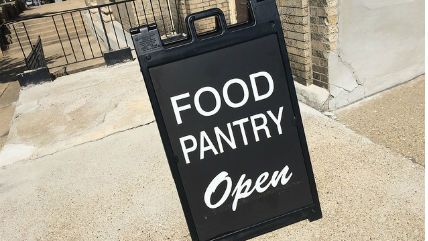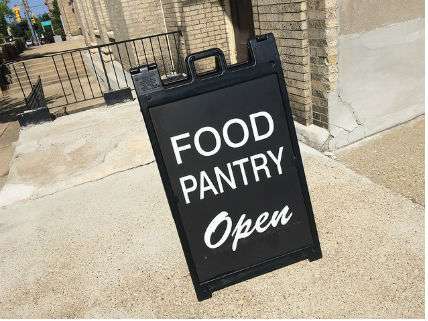Should Faith-Based Charities Be Eligible for Government Dollars?
An effort to repeal Oklahoma's Blaine Amendment last week failed.


Is allowing public dollars, in the form of grants and scholarships, to flow to faith-based organizations a violation of the Establishment Clause? Or does making religious groups ineligible for money that is available to secular groups an infringement on the former's First Amendment rights?
Amid the excitement of the presidential election, this was the little-noticed conundrum facing voters in Oklahoma last week. That state, like some 37 others, has what's known as a Blaine Amendment on the books forbidding public money from going to faith-based charities and schools. A proposal on the ballot would have repealed that provision, making the Sooner State the first to do away with a Blaine Amendment.
The measure, Ballot Question 790, ultimately failed. But is that a good thing or a bad thing?
Unlike the conflict between preventing private discrimination and protecting religious liberty, which I think ought to be easy to resolve (only the latter value is embedded in the Constitution, after all), this question is arguably tricky. Our founding documents make clear the government isn't supposed to offer direct support to any one religion. But they're also clear that the government is not permitted to punish institutions just for practicing certain beliefs.
One of the groups urging people to vote yes in Oklahoma was The Becket Fund for Religious Liberty, who pointed out that Blaine Amendments can hurt people on the ground since, in many cases, the best and most effective charitable organizations—from food pantries and soup kitchens to prisoner re-entry programs and drug rehab centers—are affiliated with churches, synagogues, and mosques. If these service providers are preventing from applying for grant money, the money will go to alternative providers that may not get as much bang out of each buck as their faith-affiliated counterparts, who have often been in the charitable business a lot longer.
Supporters of the ballot question also noted that the Blaine Amendment in Oklahoma has been used to push "a series of ugly lawsuits by secular groups against parents of disabled children." In a nutshell, the lawsuits say families should not be allowed to use vouchers to send their special-needs children to sectarian schools that offer programs designed to serve kids with disabilities. That doesn't seem to make a lot of sense.
On the other side of this issue, the American Civil Liberties Union described the ballot measure as a "dangerous and misguided attempt by politicians to strip away one of our most fundamental protections." Faith-based institutions that do take public dollars—there is no federal Blaine Amendment—are required to segregate those funds and ensure they aren't used for proselytization or worship. But supporters of the rule don't think that's enough, and perhaps they have a point: Money is fungible, is it not? When an evangelical Christian charity gets taxpayer dollars to provide a certain service, doesn't that free the group up to take whatever funds would otherwise have been used for the charitable purpose and reallocate them to more explicitly religious pursuits?
As libertarians, we may be asking why public funding should be made available to any private groups, be they faith-based or secular. If we left it to individuals and organizations to decide where to donate their money, it would eliminate the need to decide whether or not religiously affiliated charities should be disqualified from seeking government support.
But of course, that isn't a live proposal at the moment. Too few Americans support doing away with government financing of social services. Even if we can't privatize the funding stream, though—and let's be honest, when was the last time the government stopped paying for something?—maybe the next best option from a free market perspective is to get the provision out of the hands of bureaucrats and into the hands of people who really know the communities they're serving.


Show Comments (90)